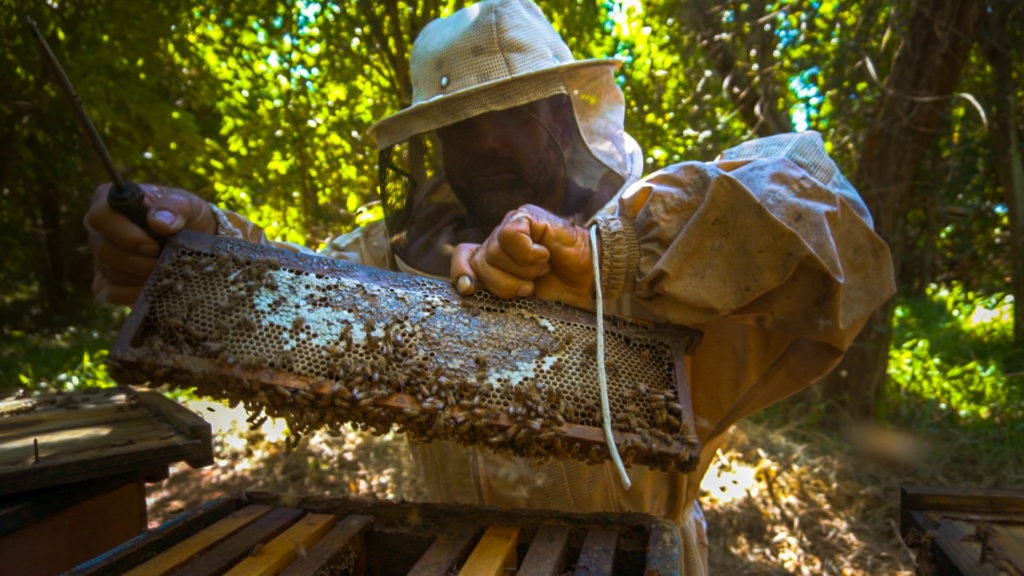Brazilian sugarcane producers play a vital role in preserving biodiversity while providing sustainable food, innovative green packaging and solutions for green transport. Delivering on the Paris Agreement climate goals requires an international effort and consideration of all possible solutions. Biodiversity has a critical role in fighting climate change and the EU’s Biodiversity Strategy is an important step to raise the ambitions on this issue at European level and globally through the envisaged UN Global Biodiversity Framework.
Towards a level playing field
The EU Biodiversity Strategy aims to protect at least 10% of agricultural land to provide space for wild animals, plants, pollinators and natural pest regulators. The commercial sugarcane industry in Brazil has successfully demonstrated that industries can grow and flourish whilst respecting even higher quotas of biodiversity protection. Over 90% of Brazilian sugarcane production takes place in South-Central Brazil, with the remainder grown along the coast of North-eastern Brazil. In these regions, producers are required by the Forest Code to protect between 20% and 35% of native vegetation as well as the areas bordering rivers (riparian areas) and springs and ensure biodiversity corridors. Only in São Paulo State, the sugarcane sector has protected more than 200 thousand acres of riparian areas and 8230 springs since 2007.
While the surface of protection proposed by the EU Biodiversity Strategy falls short of what is required of Brazilian producers, we welcome the introduction of such measures as a positive step towards a level playing field.
Helping biodiversity thrive
One of the initiatives that is part of the new strategy, is the implementation of biodiversity corridors. They encourage the growth of native flora and fauna, the return of natural pollinators and the preservation of soil health, all critical elements to ensure the long term success of the habitats. The use of biodiversity corridors was implemented in Brazil a near decade ago with sugarcane producers ensuring their existence and maintenance. These corridors help to protect the habitat of many species, including large mammals such as the jaguar, that in turn help keeping rodent populations in check.[1]
Sugarcane producers are also increasingly monitoring pollinator populations and are using their permanent preservation areas to enhance habitats for bee populations to thrive. Knowledge sharing with local beekeepers is integral to this initiative, leading to capacity building on both sides. Moreover, an increasing number of members are successfully applying biological control and thereby minimizing the use of pesticides.
Finally, Brazilian sugarcane producers have developed innovative organic fertilizers as a by-product of sugarcane processing. This is in line with our commitments to promote biodiversity, improve soil health and reduce reliance on chemical fertilizers.
Sustainable decarbonization
Increasing and protecting biodiversity supports carbon capture. However, without decarbonizing the energy system in parallel, its benefits are limited. Brazil’s diverse energy mix allows the country to meet 45% of its energy demand with renewable sources. This makes Brazil energy sector one of the least carbon-intensive in the world.[2]
The EU has already set sustainability criteria for biofuels and through its own research[3] concluded that Brazilian sugarcane ethanol meets all the environmental criteria as a carbon-efficient solution for decarbonized transport, and that production increases to meet the predicted demand would not displace or impact other crops in the region.
A tried and tested formula
Brazilian sugarcane ethanol is not only helping to achieve the ambitions set out in the European Green Deal and reinforced in both the Farm to Fork and Biodiversity strategies. Brazilian sugarcane cultivation sets an example of how these targets can be achieved while providing sustainable bio-based alternatives to fuel and plastics that help decarbonizing the economy. The Brazilian experience provides opportunities and learnings that can help Europe reaching its own sustainability ambitions.
[1] Ecological Society of America, Assessing the umbrella value of a range‐wide conservation network for jaguars, 2015
[2] IEA, Country profile Brazil
[3] Assessing the impacts of the EU bioeconomy on third countries: Potential environmental impacts in Brazil of EU biofuel demand to 2030, JRC science for policy report, 2019
Emily Rees serves as Europe Representative for UNICA, the Brazilian Sugarcane Industry Association. A Franco-British national, Emily comes from an extensive career in trade policy and economic diplomacy, having led Brazil’s trade and investment agency relations with the European Union and served as Deputy Trade Attaché of France to Brazil. An economist by training, Emily’s expertise lies at the intersection of trade, sustainability and agriculture.

